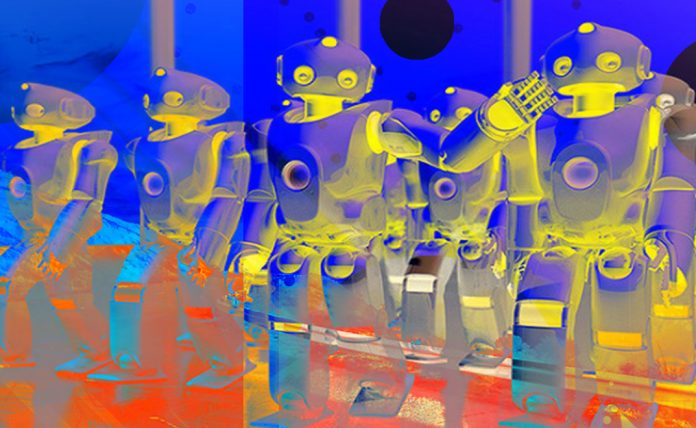Scientific and technological advancements have always had significant impacts on human lives over the course of history. Artificial intelligence, as a major technological force, has already started exhibiting its impact at a global level. However, this is just the beginning. The impending impact is going to be more deep-rooted, more disruptive and more transformative than we have witnessed in history. Every aspect of human civilisation is going to get affected and eventually transformed — be it academia, corporations, social institutions or individuals.
An Imperfect Past
Formal efforts in AI started in the 1950s. It witnessed several ups and downs, particularly two major winters. Most of the impact was limited to the research labs of academia, government institutions and top global corporations. AI-based early expert systems began to be adopted by a few leading players in the ‘80s. The ‘90s witnessed prototyping of use cases in diverse areas such as gaming, NLP, computer vision, VR, and others. The impact on day-to-day human lives was generally limited to gaming, and that too, on a much smaller scale. The new century witnessed significant developments and the scope of AI increased, especially after the 2009 economic recession. X-Box 360 (Microsoft) and Siri (Apple), Cortana (Microsoft) started getting adopted at a large scale. Chatbots and autonomous cars followed next. All these helped capture public imagination pertaining to AI and gradually started impacting and changing people’s lives.
An Evolving Future
Most of the global AI research and development today are taking place in seven key areas:
- Affective computing and social intelligence
- Automated planning
- Knowledge representation and reasoning
- General intelligence
- Machine perception
- Motion and manipulation
- Natural language processing, understanding and generation
Overall, these areas have a significant effect on three aspects of human life
- Personal and social
- Jobs
- Organisations
Let us explore the same.
Impact on Personal and Social Lives:
We have already started witnessing massive changes in people’s personal and social life patterns. The impact of AI can be observed from three perspectives.
- AI enhances the effectiveness and efficiency of the other factors.
- AI enables the development of intelligent and cognitive systems.
- AI enables better decision-making, both at individual and organisational levels, through data-driven approaches.
All these are making (and will continue to make) people’s lives more comfortable and more connected.
For example, identity detection through facial recognition, intelligent virtual assistants, chatbots and voice-based devices are already making their mark in easing up people’s lives. Hyper-Personalisation is the next big wave. Each individual will be served information based on their individual preferences. While recommendation engines in e-commerce websites and personalised marketing with omnichannel data are already in place, we are going to witness more granular personalisation with higher accuracy, in real-time and at large-scale.
Impact on Jobs:
The long-term impact of AI on jobs is going to be positive. There will obviously be short-term pains. At a broader level, the impact of AI is two-fold.
- It enables the production of current outputs at significantly greater levels and with increased efficiencies like faster cycle time, reduced costs and higher quality.
- It enables the creation of new outputs that were not possible before.
Most of the public discourse on AI has been centred on the first point, which at a prima-facie level, implies the loss of jobs as AI systems take over. However, the second point is the one we should really be focusing on as it is the primary reason for the creation of new jobs.
Impact on Organisations:
The value created by AI is going to be unevenly distributed among organisations, at least till the foreseeable future. This differentiation is on account of four principal factors.
- Organisations depend on raw materials, and those that mine and consume these more efficiently than others will emerge as long-term leaders. In today’s age, data and AI talent are key raw materials. Companies with better data mining and talent management capabilities will reap significantly greater benefits.
- We will witness gradual but long-term human-robot partnership in corporations, especially for manual labour and repeatable processes. Bot resources will replace humans for jobs at the lower end of the spectrum, while human resources will focus on the high-end ones. Bots will gradually move to the higher end of the spectrum, and the spectrum itself will keep shifting north. Additionally, a significant focus will be on performing work-at-scale.
- As employees truly understand the way AI systems operate and the value of each data point, they will focus on deep-level information exchange, on greater integration and holistic organisational consolidation, thus breaking internal barriers and organisational silos.
- The enterprise adoption of AI is slowly leading to the emergence of new-age business models, the creation of new roles and responsibilities, and non-specialists gradually transitioning over to specialist roles.
Examples Of Changing Roles
Many of the traditional roles are gradually getting transformed due to the advent of AI. Here are three examples:
- Software Architects: Technical architects that traditionally focused on the engineering architecture are now charged with the added task of designing and integrating AI and machine learning components into (often legacy) system architecture. This is enhancing their scope of design and necessitates them to acquire new competencies.
- Product Managers: One key transformation that is emerging is that of product managers gradually becoming corporate data strategists. This is because ideating and developing AI products and solutions require a deep understanding of enterprise and non-enterprise data, and implement best practices for end-to-end management of that data.
- Sales Reps: Unlike traditional systems, most AI systems are progressively built and deployed, and get fine-tuned over a period of time. This necessitates Sales Reps to focus not just on closing a particular sale, but also to monitor how that evolves over a certain time period. As a result, some pure play Sales roles are changing to a mix of Sales and Delivery.
Are We Geared Up For The Current And Impending AI Impact?
Today’s situation is not much different from the period between the late 18th century and the mid-19th century that marked the first Industrial Revolution. There was a lot of public concern regarding massive upheavals that would be caused due to this industrialisation. In fact, a group of English textile workers, called Luddites, went to the extent of violently protesting by destroying mechanical looms. Most aspects of human life were impacted, but this impact was primarily positive. The introduction of power looms in the textile industry increased the average worker productivity by 40X. Steam power began to be commercially used for industrial development. Goods started becoming cheaper and more widely available due to the invention of machine tools that scaled up production at lower costs. Medical instruments began to be produced more efficiently, leading to advancements in medicine. The negative impact of this industrialisation was primarily pollution, overcrowding of cities and lack of worker safety. But the overall impact was large-scale positive human development.
The best way to prepare for this AI impact would be to study the evolutions of past major technological disruptions and strategise effectively to make the most of this disruption. This should be done both an individual level as well as at an organisational level.
Closing Comments
My view is that AI enables human evolution through technological innovation, and the best way to deal with it is to treat it that way.
AI will largely act as an augmentation force to human intelligence and will provide an opportunity to humans to shift to higher-end and more complex roles. Traditional approaches to managing personal and social lives are already getting disrupted, and new approaches will continue to evolve in the foreseeable future. Organisations will gradually become more efficient, rely less and less on domain expertise, and more and more on performing complex work at scale.
We are in the middle of the fourth Industrial Revolution. The key disruptor is the convergence of multiple technologies, led by AI. There will be some fallouts, some smaller successes and some massively bigger ones. All these outcomes, whether positive or negative, will greatly affect human lives. However, the overall long-term impact is going to be positive on all fronts.

























